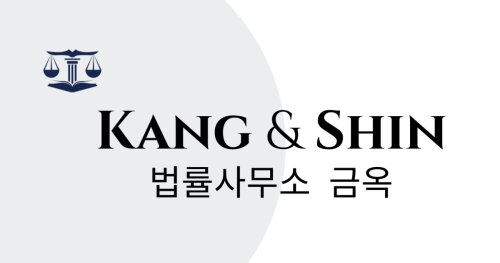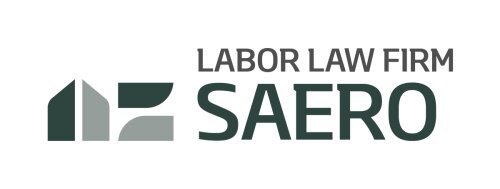Best Pension Lawyers in Seoul
Share your needs with us, get contacted by law firms.
Free. Takes 2 min.
List of the best lawyers in Seoul, South Korea
About Pension Law in Seoul, South Korea
Pension law in Seoul, South Korea, is governed by a set of regulations designed to provide financial security to individuals after retirement. The National Pension Service (NPS) is the main body responsible for managing pension schemes and ensuring compliance with relevant laws. These pensions aim to replace a portion of the individual's salary when they retire, based on their contributions during their working years. The system is divided into four types of pensions: the national pension, the civil service pension, the military pension, and the private school teacher pension. Each type has its own specific regulations, but all are intended to offer retirees a stable source of income.
Why You May Need a Lawyer
Engaging with a lawyer skilled in pension law can be crucial for several reasons. Common situations where legal assistance might be required include disputes over pension entitlements, inaccuracies in pension calculations, the need to understand complex pension schemes, and navigating legal reforms that might affect existing or future benefits. A lawyer can provide guidance and represent clients in legal proceedings or negotiations to resolve any compliance issues or claims. Additionally, foreign residents or expatriates may need expert legal advice to understand their eligibility and rights regarding pension contributions and withdrawals in Korea.
Local Laws Overview
The legal landscape for pension in Seoul involves various regulations and legislative acts. The central law is the National Pension Act, which defines the rights and responsibilities of contributors and beneficiaries. Key aspects include obligatory contributions from employees and employers, eligibility criteria for receiving benefits, and procedures for settling pension disputes. The law is also adaptive to changes in demographics and the economy, with periodic reforms to sustain the pension system's long-term viability. Additionally, there are special provisions for foreigners, who must typically have resided in South Korea for at least ten years to be eligible for benefits.
Frequently Asked Questions
What is the minimum period of contribution required to qualify for a pension in South Korea?
The minimum contribution period to qualify for a pension is ten years. However, individuals need to have reached the retirement age, which is incrementally rising to 65 by 2033.
Can foreigners participate in the national pension scheme?
Yes, foreigners residing in South Korea can participate in the national pension scheme. They must have a registered residence and their participation is subject to the same rules and contribution obligations as Korean nationals.
How are pension amounts calculated?
Pension amounts are determined based on the individual's average standard monthly income over their contributions period and the total period of contributions. The calculation formula takes into account inflation and cost-of-living adjustments.
Can I receive my pension if I leave South Korea?
In some cases, foreigners may be eligible for a lump-sum refund of their contributions if they leave South Korea permanently. However, this depends on the bilateral social security agreement between South Korea and the individual's home country.
What happens if I missed some contributions?
If contributions were missed, individuals might be able to buy back missed periods to ensure they meet the minimum eligibility criteria. It's advisable to consult with the NPS or a legal expert to address such situations.
Are there penalties for early withdrawal of pension funds?
Early withdrawal typically attracts penalties and might result in reduced benefits. It is important to understand the terms and conditions before opting for early withdrawal.
How can I dispute a pension benefit decision?
Dispute resolution mechanisms include filing a complaint with the NPS or, if the matter isn't resolved, pursuing legal action. Professional legal advice is recommended in such cases.
Are pensions subject to tax in South Korea?
Pension benefits may be subject to tax, and the rules can vary based on the type of pension and the individual's total income. Consultation with a tax adviser or lawyer is advised to fully understand tax liabilities.
What changes are expected in South Korea’s pension laws?
South Korea faces challenges such as an aging population, which may lead to reforms in contribution rates, eligibility ages, and benefit calculations to ensure sustainability. Keeping updated with policy changes is crucial.
Can I use my pension as collateral for loans?
Using pensions as collateral is generally not allowed under Korean law, as pensions are meant to secure individuals' livelihoods post-retirement.
Additional Resources
For further assistance, individuals can reach out to several resources and organizations. The National Pension Service provides comprehensive support and information about pension plans. Legal assistance services and free advisory bodies like the Korea Legal Aid Corporation can also be beneficial. Additionally, expats might find their relevant embassy helpful in navigating pension rights and transfers.
Next Steps
If you need legal assistance regarding pension matters in Seoul, it's advisable to first gather all necessary documentation related to your pension contributions and benefits. Contact a reputable law firm with expertise in pension law to schedule a consultation. Consider joining forums or networks of expatriates who can share insights and experiences. Always be proactive in understanding your rights and obligations under Korean pension laws to secure your financial future post-retirement.
Lawzana helps you find the best lawyers and law firms in Seoul through a curated and pre-screened list of qualified legal professionals. Our platform offers rankings and detailed profiles of attorneys and law firms, allowing you to compare based on practice areas, including Pension, experience, and client feedback.
Each profile includes a description of the firm's areas of practice, client reviews, team members and partners, year of establishment, spoken languages, office locations, contact information, social media presence, and any published articles or resources. Most firms on our platform speak English and are experienced in both local and international legal matters.
Get a quote from top-rated law firms in Seoul, South Korea — quickly, securely, and without unnecessary hassle.
Disclaimer:
The information provided on this page is for general informational purposes only and does not constitute legal advice. While we strive to ensure the accuracy and relevance of the content, legal information may change over time, and interpretations of the law can vary. You should always consult with a qualified legal professional for advice specific to your situation.
We disclaim all liability for actions taken or not taken based on the content of this page. If you believe any information is incorrect or outdated, please contact us, and we will review and update it where appropriate.














